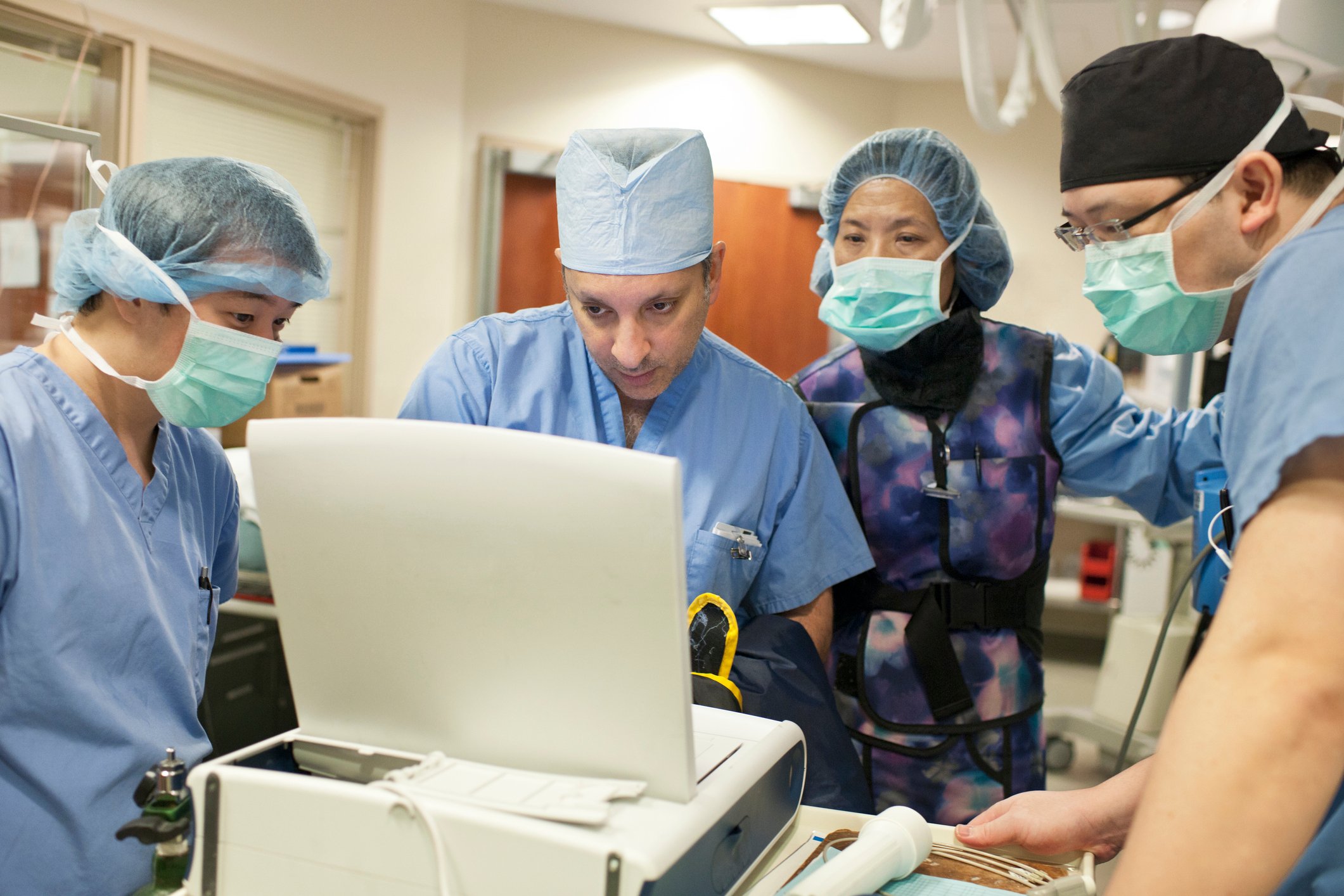

EHR is the core of every healthcare organization today. Many aren't aware of all the changes that were required to the EHR to enable the COVID-19 response. Many EHR consulting teams, vendors, and healthcare organizations partnered and worked harder than ever during the crisis, while other EHR projects were put on the back burner. Justin Diehl, CHCIO, MBA, PMP, and Vice President of Epic Services at CereCore sat down with John Lynn at Healthcare IT Today to discuss the longer-term impacts of the crisis on the EHR.
The video discussion covered many questions regarding the lasting impacts, paradigm shifts, and the work still needed to the EHR for healthcare organizations to move forward in the best way possible.
What are some of the changes made to the EHR for COVID-19?
Analytics became critical to scoping the impact of the virus within facilities, local and nationally – including creating community standards so that the data from various facilities or platforms were uniform and could be used.
EHRs had to be nimble enough to respond to the various markets – the ones that were suffering large outbreaks and those that were not able to perform services and were experiencing opposite ends of staffing scenarios. We had to create new screening tools to ensure patients and caregivers were safe. We had to create new labs, orders, and order sets for the new virus. And we had to stand up new and virtual departments to adjust to capacity needs. Clinicians were being mobilized to units experiencing surges, even individuals who were in administrative or IT roles with valid licensures were stepping up in triage and other areas. That made user roles (Epic templates) important to supporting staff through the correct documentation and treatment protocols.
What is the lesson from telehealth being implemented so quickly?
There is a perception that Healthcare IT is where good ideas go to die simply because of how long it takes to execute new ideas. A typical telehealth implementation could take months in the past and we executed in a week for our facilities. The lesson from this is that we can reduce the red tape and pivot on big needs successfully – and that is going to be a lasting change and lesson in balance moving forward.
What is the biggest positive change for the EHR from COVID?
An example of one of the bigger problems pre-COVID is that perhaps Epic is more advanced on mobile development than some of the third-party systems that interact with it. So a nurse or physician can do their Epic work on a smartphone or tablet but still need a computer to look at EKG results. These issues are fostering a stronger sense of collaboration. The increase in development between vendors and partners to deliver enhancements during COVID has been impressive.
Where do we need to focus more to move forward with the EHR?
The biggest area is interoperability. You might have one EHR that may be taking a lab and then sent to a hospital with another EHR. We've learned that interoperability may not have been as strong as we need. And reducing our focus on competing business interests, etc. for the sake of interoperability is needed to move forward.
The other area is analytics as it relates to interoperability. EHRs have done well with analytics, but only when all that data is contained within the EHR. The data can be difficult to mine because different EHR platforms contain different data points and making analytics more interoperable will help healthcare as a whole.
How has COVID impacted the EHR consulting business?
There has been a lot of delaying and postponing of projects so that organizations can take a strong look at the portfolio to control the costs. In healthcare IT there's been such a trust that healthcare jobs are always going to be needed. This crisis is the first time that we've seen furloughs across the board.
For EHR consultants it is changing the paradigm or model so that consultants aren't always on a set 40 hours a week contract. At CereCore, this means coming in and being a strong partner and telling our clients "If you need someone for 10 hours, we will provide that for you." This allows the healthcare community to get granular about their needs and get the most bang for their buck. It is up to us as the consulting firm to manage our talent bench to meet those needs.
What is the impact of delayed EHR optimization projects on organizations and their care providers?
My fear is most organizations reacted by gut because there wasn't time to deeply analyze and picture things while dealing with the crisis. For organizations to catch up on strategic items that were delayed, it is going to take a partnership between all sides – healthcare organizations, consulting companies, and vendors. And we must all understand that everyone is in a different place in their progress. Healthcare organizations and their employees have been through a lot in these last months, and it will be interesting to see how we all respond to "COVID-PTSD" so to speak.
What do you see for the EHR of the future?
I believe our focus will bring about integration that we probably haven't even thought of yet. For example, many turned to mobile grocery ordering during COVID. Having partnerships between healthcare organizations and mobile services can drive some good data for the dietician in this example. So integrating throughout the whole patient journey can support accountability and outcomes.
To hear the detailed discussion in its entirety, view the HealthIT100in100 video.
CereCore® provides IT services that make it easier for you to
CereCore® provides IT services that make it easier for you to
Let us know how we can support your initiatives and take some of the heavy lifting from healthcare IT.
© All Rights Reserved CereCore Terms of Service California Notice at Collection Privacy Policy Responsible Disclosure